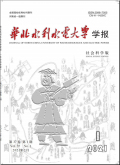华北水利水电大学学报(社会科学版)2024,Vol.40Issue(5):75-82,8.DOI:10.13790/j.ncwu.sk.2024.060
人工智能武器对国际人道法的冲击与回应
The Impact of Artificial Intelligence Weapons on International Humanitarian Law and Responses
摘要
Abstract
New weapons developed using artificial intelligence technology in the military field have emerged rapidly.AI weapons are characterized by their intelligence and offensiveness,and can be considered as tools to assist human attacks with a certain degree of autonomous decision-making ability.The emergence of AI weapons has impacted the principles of distinction,proportionality and the Maltens Clause of international humanitarian law,posing challenges to the principle of accountability within this framework.To ensure the ra-tional use of AI weapons,the international community should strengthen the prior review system,establish standards for implementation during the event,improve the mechanism for accountability after the event.These measures aim to achieve peace,security,and dignity in human society,thereby avoiding significant le-gal risks and ethical crises brought about by AI weapons.关键词
国际人道法/战争法/人工智能武器/《特定常规武器公约》Key words
international humanitarian law/the laws of war/Artificial Intelligence weapons/Convention on Certain Conventional Weapons分类
社会科学引用本文复制引用
付姝菊..人工智能武器对国际人道法的冲击与回应[J].华北水利水电大学学报(社会科学版),2024,40(5):75-82,8.基金项目
国家社会科学基金重大研究专项项目(18VHJ015) (18VHJ015)
中国人大制度理论研究会立项课题(2021052) (2021052)
北京师范大学学术型研究生专项科研基金项目(2022LAW011) (2022LAW011)

